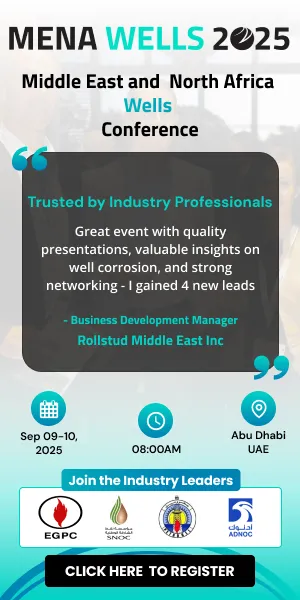Water pump solutions provider Grundfos hosted a leadership roundtable session in partnership with DEWA at WETEX, which was held from 15-17 November
The sessions were aimed at fostering collaboration among government and private sector stakeholders to advocate for policies that promote sustainable water management in the Middle East region. The roundtable saw the attendance of 30 VIP guests. The discussion was structured around three key areas of focus under the main theme of ‘Transforming water together’, which included fostering multilateral collaboration, defining actionable policy recommendations, and highlighting innovative solutions and best practices.
With its deserts, hyper-arid climate and salty seas, the Middle East’s natural water supply is scarce. While countries in the Middle East, more so than any other region, rely heavily on technology to guarantee their water supply, the current systems are not completely sustainable, efficient, or equitable. The struggle for water security is bound up in the wider drive for overall economic and environmental sustainability. This makes the management of water resources a chief priority for practically every Middle Eastern nation.
In line with local government initiatives to combat regional water scarcity challenges through innovation and sustainability, the roundtable discussion generated a number of key outcomes that strategically focus on generating the policy changes needed to drive the adoption of water-saving technologies and drought-resistant infrastructure.
The following were the recommendations from the roundtable discussions:
1. Innovation and utilisation of modern technologies: Implement a comprehensive plan to integrate state-of-the-art technologies like SCADA (Supervisory Control and Data Acquisition) and IoT (Internet of Things) within water networks. This involves deploying sensors and smart devices across the infrastructure to gather real-time data on water flow, quality, and network status. Develop protocols for data analysis and interpretation to enable efficient monitoring and predictive maintenance, allowing for swift responses to potential issues.
2. Incentivising Public-Private Partnerships (PPPs) through performance-based contracts: Advocate for the establishment of performance-based contracts that incentivise private sector involvement in water projects. Collaboration ensures a shared responsibility for meeting goals, promoting innovation, and maintaining the infrastructure's operational efficiency over time.
3. Academic collaborations for desalination efficiency: Foster robust partnerships with academic institutions, particularly universities, to drive research and development initiatives aimed at enhancing energy efficiency in desalination facilities. Develop joint programs that facilitate knowledge exchange, access to research grants, and collaborative projects focusing on innovative technologies for sustainable desalination methods.
4. Policy implementation for construction stage: Formulate and enforce policies that specifically address construction stage challenges to prevent leakages within water systems. This involves stringent regulations and standards ensuring proper installation techniques, material quality checks, and procedures to mitigate issues like dust contamination during welding and installation, thus minimising potential leak points.
5. Improved leak identification: Invest in advanced leak detection technologies and methodologies. Promote the adoption of cutting-edge leak identification tools and methodologies to swiftly identify and locate leaks within the water network. Develop training programmes to ensure operators are adept at utilising these tools effectively.
6. Advancements in construction methods: Encourage research and development in fundamental construction techniques tailored to water infrastructure. Collaborate with engineering and construction industries to innovate methods that reduce vulnerabilities and weak points prone to leaks, integrating durable materials and improved installation practices.
Michael Nielsen, senior regional sales director, Water Utility – IMEA, said, “As a global leader in innovative water solutions, we recognise the pivotal role of the private sector in fostering multilateral collaboration and pioneering innovative technologies. We are proud to have hosted the leadership roundtable in partnership with DEWA, and to have heard from some of the most esteemed individuals in the field regionally, to discuss the future of water sustainability. We have come away from the event with a renewed sense of hope and motivation to work together to spearhead innovative solutions, foster partnerships and advance new policies that drive sustainable water management in the Middle East region.”





